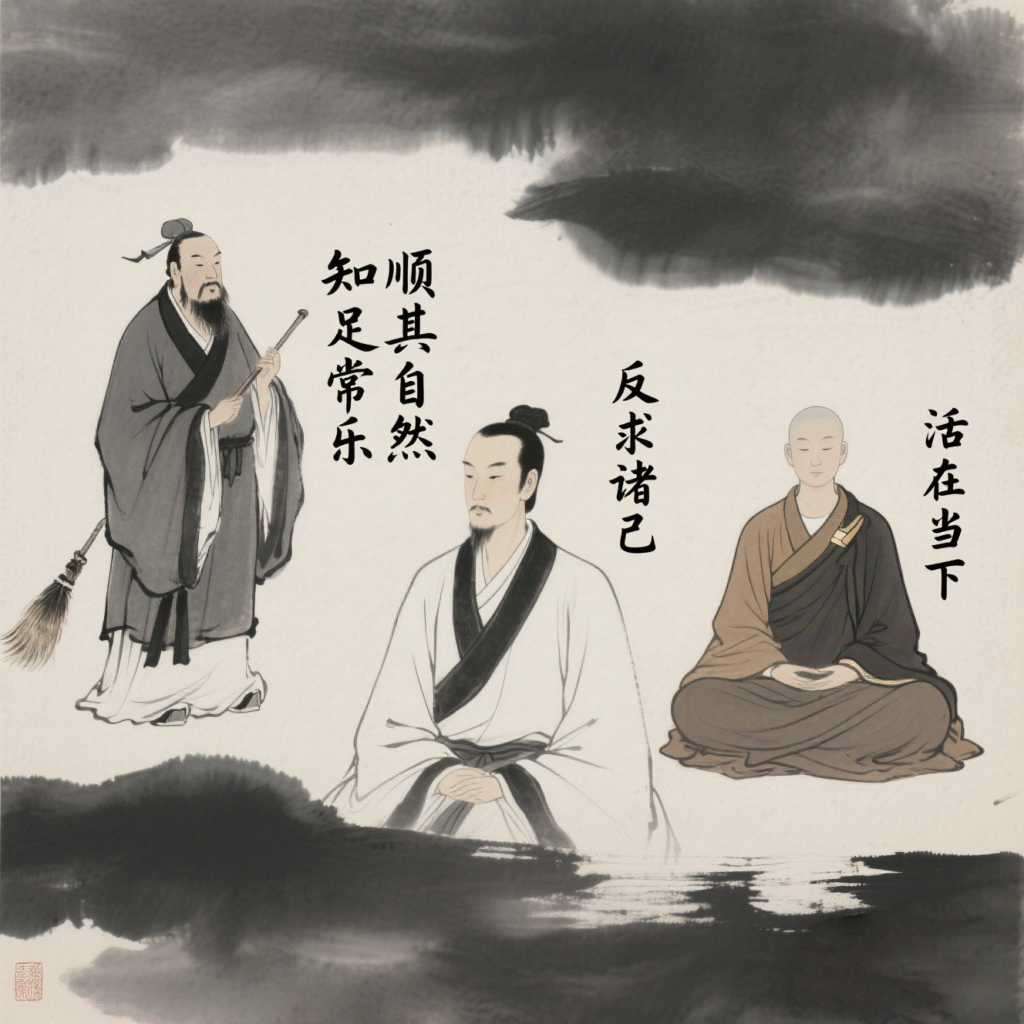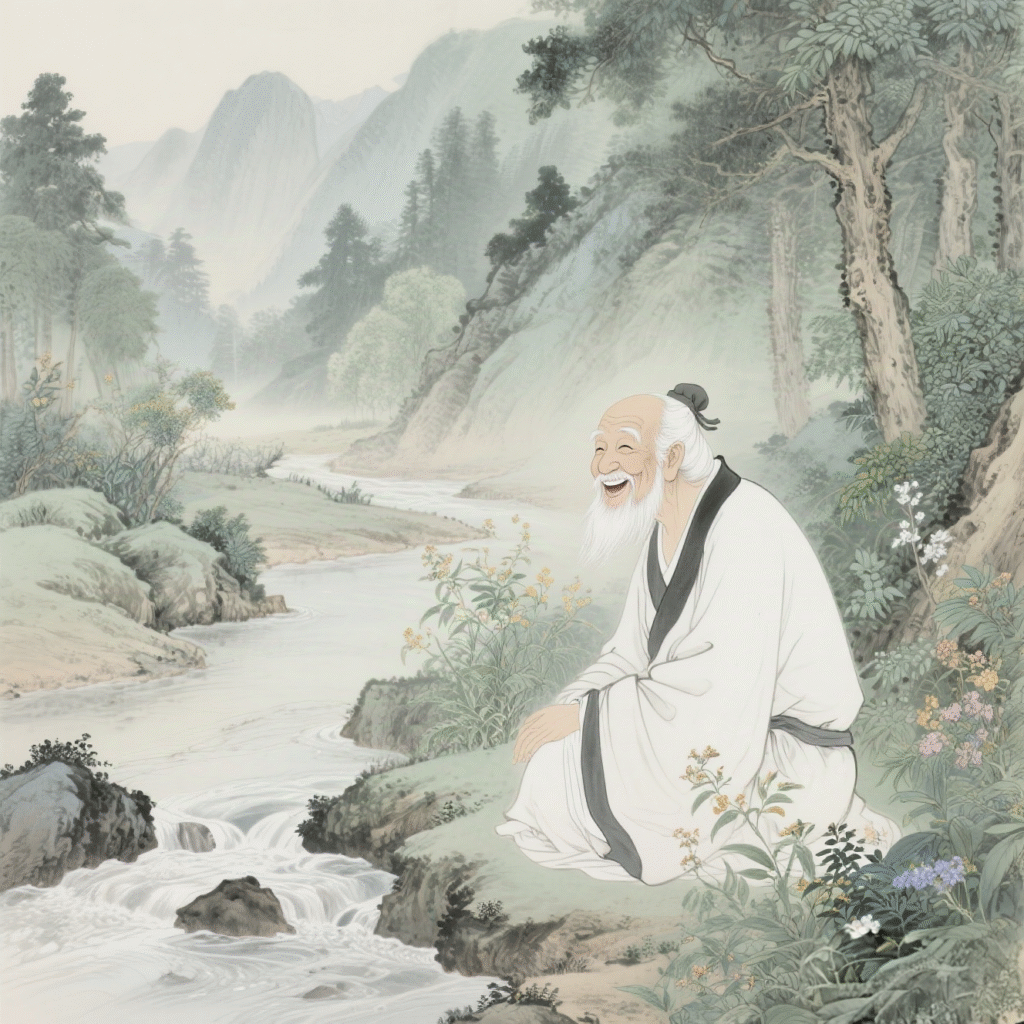Ancient Wisdom, Eternal Enlightenment:
The Contemporary Resonance of Chinese Philosophy

Over two millennia ago, Confucius traveled states preaching “benevolence loves others”; Laozi rode his ox west, leaving the adage “Dao follows nature”; Zhuangzi dreamed as a butterfly, pondering transcendence of self… These thinkers’ light still illuminates modern souls lost today.
This is Chinese philosophy—the Chinese nation’s profound inquiry into cosmos, life, and society.
Its pillars are Confucianism, Daoism, and Buddhism (Sinicized)
Confucianism values engagement—self-cultivation, family harmony, state governance, universal peace—emphasizing duty, ethics, and order (“Ren, Yi, Li, Zhi, Xin” 仁义礼智信).
Daoism reveres nature—advocating wu wei (effortless action) and spiritual freedom.
Buddhism (especially Chan/Zen) focuses on mind—seeking enlightenment and liberation.

Though distinct, they fused historically, shaping the Chinese ethos: “Serve the world when successful; cultivate oneself when obscure” and the ultimate ideal of “Unity of Heaven and Humanity.”
This wisdom permeates culture: tea ceremony’s tranquility, gardens’ artistic conception, Daoist talismans’ symbolism, and handicrafts’ pursuit of harmony (e.g., landscapes on fans, paper-cut compositions).
Art of Living

In today’s competitive, information-saturated world, Daoist “contentment brings happiness” and “go with the flow” ease anxiety; Confucian “self-reflection” reminds us to nurture character; Chan’s “live in the present” teaches focus.
Chinese philosophy is not obsolete dogma but a timeless wellspring of wisdom. Reading annotated philosophical classics, attending an applied Eastern wisdom lecture, or admiring philosophy-inspired art offers guidance for modern struggles and inner peace.